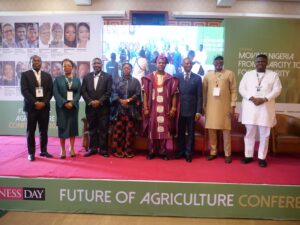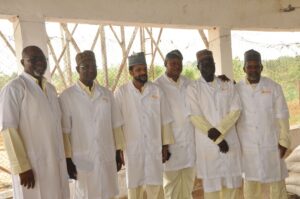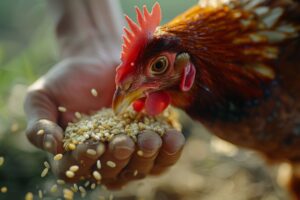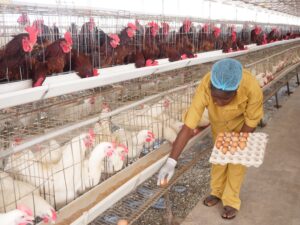Poultry farming is a major source of food for people around the world. In fact, poultry meat is the most widely consumed meat in the world, and eggs are a major source of protein and other nutrients. However, poultry farming can also have a significant impact on the environment.
Sustainable poultry farming is the practice of raising poultry in a way that minimizes its environmental impact. This can be done through a variety of methods, such as:
- Using sustainable feed sources: Sustainable feed sources can help to reduce the amount of land, water, and energy used in poultry production. For example, the Sustainable Poultry Network (SPN) reports that some farmers are using insects as a source of protein for their chickens. Insects are a more sustainable source of protein than traditional feed sources.
- Minimizing water use: Poultry production can be a water-intensive industry. The World Wildlife Fund (WWF) states that the average broiler chicken consumes about 1.8 gallons of water per day. Sustainable poultry farmers can minimize water use by using water-efficient equipment, such as drip irrigation, and by recycling water.
- Reducing waste: Poultry manure is a major source of waste. The FAO estimates that the global poultry industry produces about 1.4 billion tons of manure per year. Sustainable poultry farmers can reduce waste by using composting or anaerobic digestion to convert manure into fertilizer or energy.
- Managing pests and diseases: Poultry can be susceptible to pests and diseases. The SPN states that conventional poultry production relies heavily on the use of pesticides and antibiotics. Poultry farmers can avoid having high dependency on this by vaccinating their chickens against diseases to prevent outbreaks.
Sustainable poultry farming can play a significant role in achieving the Sustainable Development Goals (SDGs). The SDGs are a set of 17 goals that were adopted by the United Nations in 2015. The SDGs aim to end poverty, protect the planet, and ensure prosperity for all by 2030.
The following are some of the SDGs that are most relevant to sustainable poultry farming:
- SDG 2 (Zero Hunger): The FAO states that sustainable poultry farming can help to achieve SDG 2 by providing a reliable source of food for people around the world.
- SDG 12 (Responsible Consumption and Production): The WWF states that sustainable poultry farming can help to achieve SDG 12 by reducing the environmental impact of poultry production.
- SDG 15 (Life on Land): The FAO states that sustainable poultry farming can help to achieve SDG 15 by protecting the environment and conserving biodiversity.
By practicing sustainable poultry farming, farmers can help to protect the planet and ensure a sustainable food supply for future generations.









